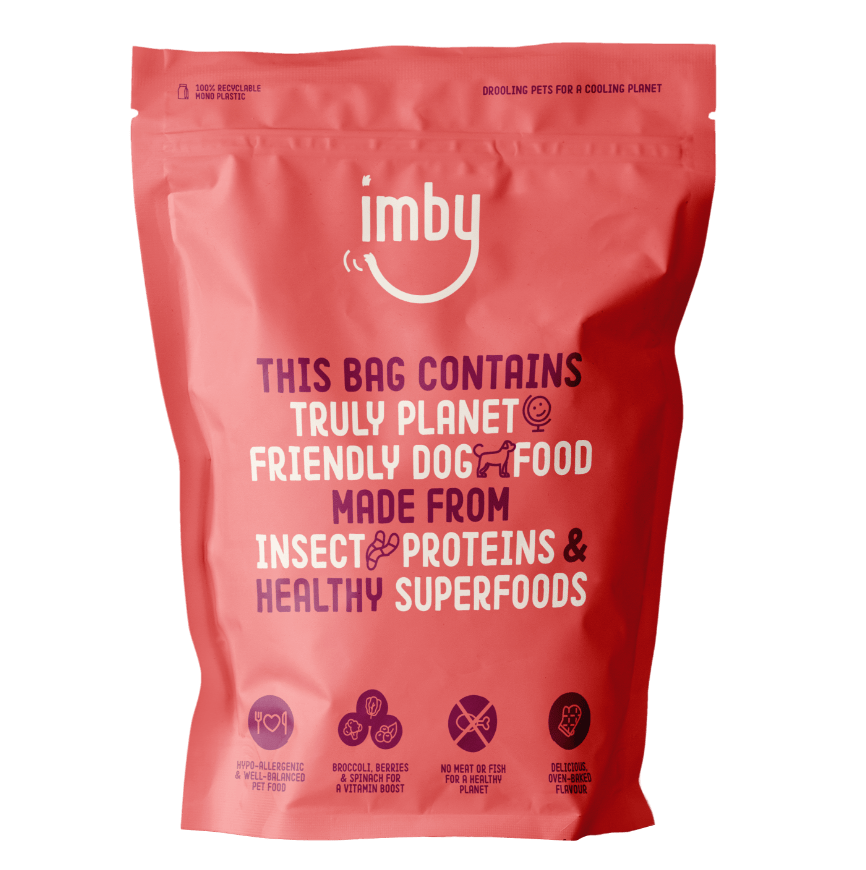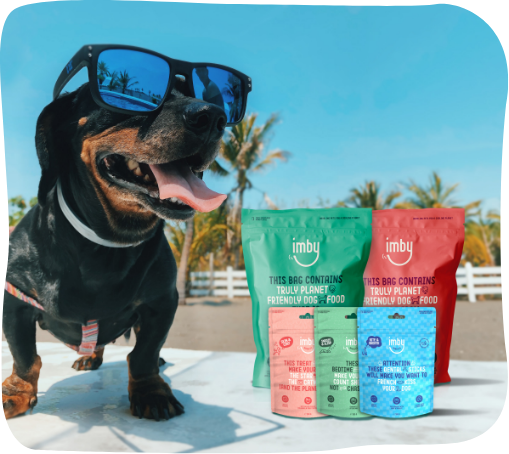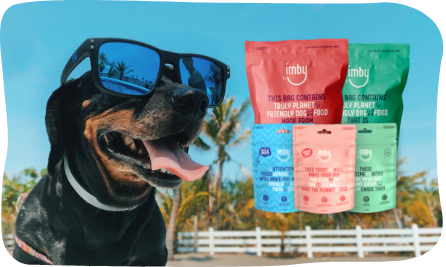Use code CHANGE20 for 20% off your first dog food order!
Use code CHANGE20 for 20% off your first dog food order!



Dog food with limited ingredients isn’t always hypoallergenic. It should be free from common allergens like chicken, beef, or lamb and have other key properties. Learn more about hypoallergenic dog food in this blog post.
Hypoallergenic dog food is specially formulated to minimize ingredients that may trigger allergic reactions in dogs. The most common allergens in canine diets include chicken, beef, lamb, dairy products, wheat, and barley. If a dog food contains any of these, it is not considered suitable for sensitive dogs.
There are two main types of allergy-friendly dog food:
Limited-ingredient diets with novel proteins: This type of food includes protein sources that are less likely to cause allergic reactions. These formulas typically feature a single, uncommon protein, such as insect protein. Since fewer than 2% of dogs show sensitivity to insect protein, it serves as an excellent alternative to traditional options like beef, chicken, or lamb.
Kibble with hydrolyzed proteins: In these diets, proteins are broken down into tiny particles so the immune system no longer recognizes them as allergens. For example, chicken protein is processed into microscopic fragments, preventing allergic reactions in most cases. However, dogs with severe sensitivities may still be at risk. For pet owners seeking an even safer option, plant-based formulas that eliminate animal proteins altogether can be a great choice.
Dog food with a simplified ingredient list has a lower chance of causing allergies but is not always allergy-friendly. If it still contains proteins like chicken or beef, the risk of triggering a reaction remains high. A limited-ingredient formula can only be classified as hypoallergenic if it excludes common allergens.
A protein source is considered hypoallergenic when fewer than 2% of animals exhibit an allergic reaction to it. Hypoallergenic protein sources include: vegetable protein, insect protein, horse meat, kangaroo meat, venison, and goat meat.
Unfortunately, discovering an allergy-friendly kibble that won’t cause a reaction in your dog often involves trial and error.
Not necessarily. Hypoallergenic dog food typically contains a limited number of ingredients that could cause allergies. However, it is possible to provide plant-based dog food with more than ten ingredients, as dogs have a very low chance of developing allergic reactions to plant proteins. Furthermore, this helps ensure the food remains complete and balanced.
To minimise allergies, it is advisable to limit the number of animal-based ingredients to no more than one or two, as these are often the main culprits of allergic reactions. The fewer animal proteins used, the lower the likelihood of allergy development.
Making homemade allergy-friendly dog food is not recommended, as it is challenging to remove all potential allergens. For instance, hydrolyzed proteins are not easily accessible for home preparation. Additionally, diets designed for sensitive dogs typically contain a carefully selected range of ingredients, and replicating this balance at home can be risky.
A DIY approach may lead to nutritional deficiencies, weakening your dog’s immune system and increasing vulnerability to illness.
Commercial dog food from trusted brands, however, must meet the minimum nutritional requirements set by FEDIAF. While the quality can vary between brands, they ensure that dogs receive the necessary proteins, fats, minerals, vitamins, and moisture when fed the correct amounts.
Hypoallergenic dog food is suitable for both dogs that do not suffer from allergies and those with allergies.
It’s important to remember that for dogs with allergies, noticeable improvements usually take at least three to four weeks, as their bodies need time to recover and flush out allergens. During this period, it’s essential to avoid introducing any other food, as even a small amount of an allergen could trigger a reaction. Treats should also be avoided unless specifically designed for sensitive dogs.
Mainstream dog food brands like Hill’s, Royal Canin, and Eukanuba primarily offer standard recipes that may not be suitable for dogs with allergies. However, some brands do include specialised options designed for dogs with allergies.
It’s important to check the ingredient list. If it contains terms like ‘meat and animal by-products,’ the food is not allergen-free unless the proteins are hydrolysed. Animal by-products often include chicken or beef, which are common allergens for dogs; even with hydrolysed proteins, there’s still a chance they may not be broken down enough to prevent allergic reactions. For a safer choice, plant-based or insect-based dog food is recommended.
For further advice on hypoallergenic kibble, don’t hesitate to reach out to your vet or a dog nutrition specialist.





It's all to make your browsing and shopping experience at Imby, a real treat! Read more about it in our Privacy Policy.
4.8 out of 5 stars
based on 1171 reviews



"*" indicates required fields